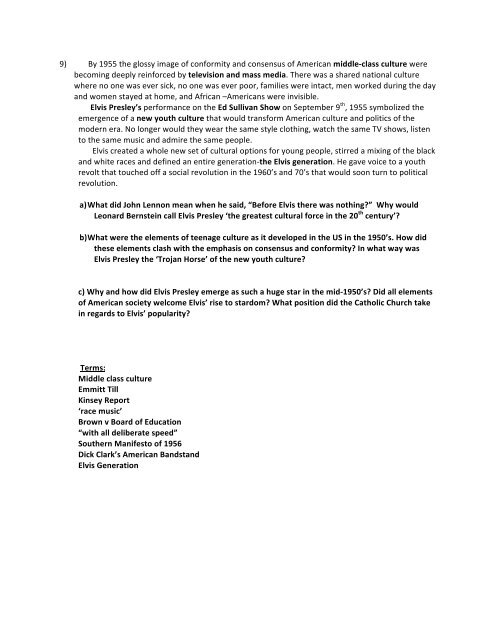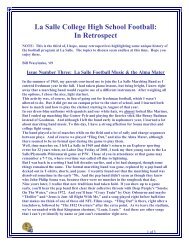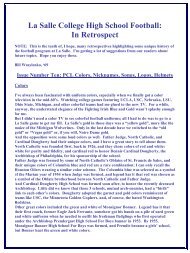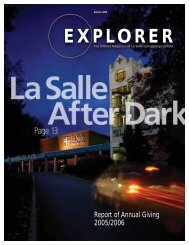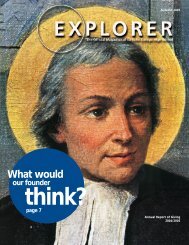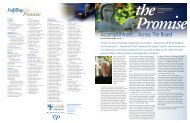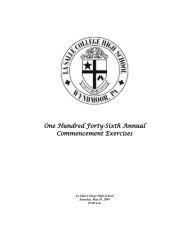10 Days That Unexpectedly Changed America
10 Days That Unexpectedly Changed America
10 Days That Unexpectedly Changed America
Create successful ePaper yourself
Turn your PDF publications into a flip-book with our unique Google optimized e-Paper software.
9) By 1955 the glossy image of conformity and consensus of <strong>America</strong>n middle‐class culture were <br />
becoming deeply reinforced by television and mass media. There was a shared national culture <br />
where no one was ever sick, no one was ever poor, families were intact, men worked during the day <br />
and women stayed at home, and African –<strong>America</strong>ns were invisible. <br />
Elvis Presley’s performance on the Ed Sullivan Show on September 9 th , 1955 symbolized the <br />
emergence of a new youth culture that would transform <strong>America</strong>n culture and politics of the <br />
modern era. No longer would they wear the same style clothing, watch the same TV shows, listen <br />
to the same music and admire the same people. <br />
Elvis created a whole new set of cultural options for young people, stirred a mixing of the black <br />
and white races and defined an entire generation‐the Elvis generation. He gave voice to a youth <br />
revolt that touched off a social revolution in the 1960’s and 70’s that would soon turn to political <br />
revolution. <br />
<br />
a) What did John Lennon mean when he said, “Before Elvis there was nothing?” Why would <br />
Leonard Bernstein call Elvis Presley ‘the greatest cultural force in the 20 th century’? <br />
<br />
b) What were the elements of teenage culture as it developed in the US in the 1950’s. How did <br />
these elements clash with the emphasis on consensus and conformity? In what way was <br />
Elvis Presley the ‘Trojan Horse’ of the new youth culture? <br />
<br />
<br />
c) Why and how did Elvis Presley emerge as such a huge star in the mid‐1950’s? Did all elements <br />
of <strong>America</strong>n society welcome Elvis’ rise to stardom? What position did the Catholic Church take <br />
in regards to Elvis’ popularity? <br />
<br />
<br />
<br />
<br />
Terms: <br />
Middle class culture <br />
Emmitt Till <br />
Kinsey Report <br />
‘race music’ <br />
Brown v Board of Education <br />
“with all deliberate speed” <br />
Southern Manifesto of 1956 <br />
Dick Clark’s <strong>America</strong>n Bandstand <br />
Elvis Generation <br />
<br />
<br />
<br />
<br />
<br />
<br />
<br />
<br />


